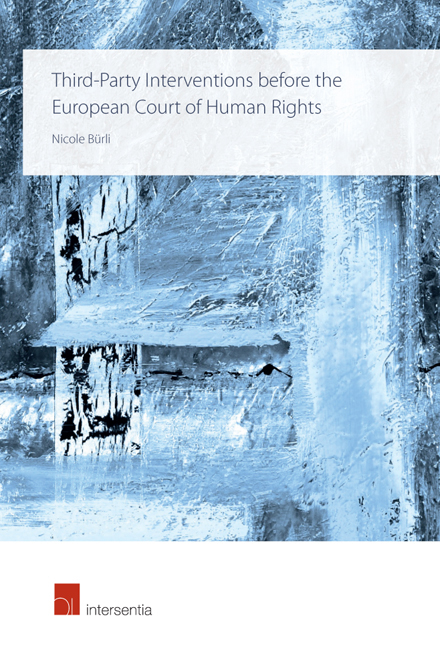 Third-Party Interventions before the European Court of Human Rights
Third-Party Interventions before the European Court of Human Rights Published online by Cambridge University Press: 29 September 2018
PRELIMINARY OBSERVATION
Although member-state interventions are far less frequent than amicus curiae interventions, assessment of their role is nevertheless important. First, there is a disagreement between the Council of Europe, on the one hand, and members of civil society and scholars, on the other hand, as to whether member-state interventions should be encouraged. While the Council of Europe favours state interventions, members of civil society and scholars fear that states try to weaken established case law. It has been argued that in the case of Lautsi and Others v Italy, for instance, member states were successful in convincing the Court that display of crucifixes on public school walls was compatible with the Convention. It is therefore important to determine whether the Court is influenced by member-state intervention and how this is reflected in the Court's reasoning. Second, like amicus curiae, member states can contribute to the interpretation of the Convention as well as provide valuable information on domestic practices and regulations. This can enrich the Court's deliberation. Third, member-state intervention can foster implementation. Although judgments directed against another state are not formally binding, the Court's interpretation is nevertheless relevant to all its members. Member states might be more willing to implement judgments directed against another state if they know the Court came to its decision by also considering their arguments. In turn, through intervention by member states, the Court is in a better position to foresee the ramifications of its judgments on other member states.
Despite their importance, member-state interventions before the Court have never been analysed and their role has barely been addressed. Studies of member-state interventions mostly apply a descriptive approach to selected cases without shedding light on their role. Hence the aim of this chapter is to empirically and comprehensively analyse the role of member-state interventions before the Court. To this end, this chapter will proceed to examine the notion and origin of member-state intervention as this is closely connected to its role.
NOTION AND ORIGIN
The concept of member-state intervention has its origin in international arbitration. It first appeared in draft rules on international arbitral procedures developed by the Institute of International Law from the University of Ghent.
To save this book to your Kindle, first ensure no-reply@cambridge.org is added to your Approved Personal Document E-mail List under your Personal Document Settings on the Manage Your Content and Devices page of your Amazon account. Then enter the ‘name’ part of your Kindle email address below. Find out more about saving to your Kindle.
Note you can select to save to either the @free.kindle.com or @kindle.com variations. ‘@free.kindle.com’ emails are free but can only be saved to your device when it is connected to wi-fi. ‘@kindle.com’ emails can be delivered even when you are not connected to wi-fi, but note that service fees apply.
Find out more about the Kindle Personal Document Service.
To save content items to your account, please confirm that you agree to abide by our usage policies. If this is the first time you use this feature, you will be asked to authorise Cambridge Core to connect with your account. Find out more about saving content to Dropbox.
To save content items to your account, please confirm that you agree to abide by our usage policies. If this is the first time you use this feature, you will be asked to authorise Cambridge Core to connect with your account. Find out more about saving content to Google Drive.